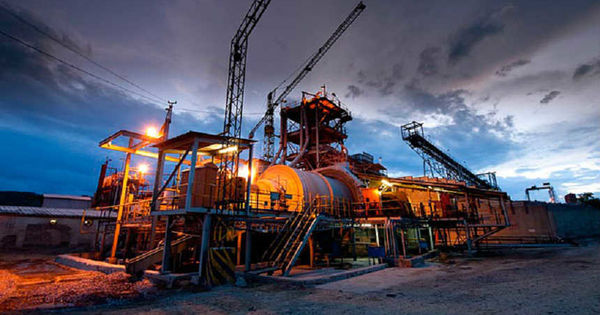BNC in projects to ramp up nickel output
BNC has over the years said it will rely on the continued stabilisation of the nickel prices to generate revenues it requires to complete the smelter refurbishment project which has remained stagnated at 83 percent completion for several years.
Nickel producer Bindura Nickel Corporation (BNC) says it has embarked on greenfield projects to increase feedstock that will go into its smelter plant while the miner is holding preliminary discussions with interested parties on possible partnerships for resuscitation of the mothballed plant.
BNC has over the years said it will rely on the continued stabilisation of the nickel prices
to generate revenues it requires to complete the smelter refurbishment project which has
remained stagnated at 83 percent completion for several years.
The smelter project which needed an estimated capital injection of US$26,5 million and
was expected to be completed by the 2017/2018 financial year has been put on hold since
2019 with the miner taking a wait-and-see approach as its completion was hinged on
increased nickel prices.
In 2015, the group raised US$20 million through a bond issue to finance the restart of the
smelter through a five-year bond with a coupon rate of 10 percent per annum and by
2017, the Company had used the raised funds to finance the project leaving it at 83
percent completion.
Over the years, the BNC has often said that they will only proceed with the completion of
the smelter restart project when the global nickel prices are around US$16 500 per tonne.
At current production, the output can only utilise 60 percent of the smelter capacity.
The smelter is strategically important to the nickel producer and processor as it will
remove a significant amount of waste material and make the final product less bulk and
help reduce the cost of transportation.
Mr Muchadeyi Masunda, the group’s chairman, said that at the moment there was every
justification to revisit the smelter project as the prices are now averaging US$30 000 per
tonne.
“We went into the market and we were left with US$6,6 million to complete the project
at the time. What prevented us from completing the project at that time was the nickel
prices that were low on the London Metal Exchange (LME).
“But that situation has changed now, because following the Russia-Ukraine crisis, the
price of nickel shot up and at one time it was over US$100 000 per ton, but it has since
come down to average US$30 000 per tonne.
“So there is now every justification for us to go back and see how we can complete the
remaining work that needs to be done,” he said in an interview.
He also noted that the reason why the company is taking a bit of time before going back
to the base metal refinery project is that there should be an assurance that the feedstock
will come from somewhere.
Mr Masunda added that at the time the BSR was operating, there were four producing
mines, namely Trojan, Madziva, Shangani, and Epoch.
The four mines, Mr Masunda said, were controlled by BNC and all the nickel that was
being produced from those mines were fed into the BSR.
He added that during that time, the National Railway of Zimbabwe (NRZ) was working
efficiently, hence the BSR was able to receive toll material concentrates from further
afield as Australia, North America, South Africa and Botswana.
“So once the smelter and refinery starts running, you cannot switch it off. So we have
that problem at the moment that Madziva mine was decommissioned and shut down as
well as Hippo.
“Shangani which has been under care and maintenance, we now need to de-water it, to
bring it back to production and take advantage of the prices that are obtained in the
market,” he said.
he noted that the Hunter Road which has always been on the cards, the company would
be even tempted to go for Hunters Road earlier than Shangani.
“At Shangani, it has always been an issue of grades,” he said. Mr Masunda noted that
nearer Trojan mine itself, there are two possibilities that the company is exploring.
He said that there was the Trojan Hill project which is not too far from the Trojan Nickel
mine, and another one at the Kingston Hill project.
Mr Masunda said that the company will finance the remaining US$6,6 million from
internal resources and will continue doing that for a long time as long as the nickel prices
remain firm.
“We should be able to leverage on our internal resources to finance current operations
and expansion operations,” he said.
BNC had its shares delisted from the ZSE on December 15, 2021 and became the fourth
company to be listed on the USD-denominated stock exchange VFEX on the 17th of the
same month.
Mr Masunda early in the year said that the company had an ambitious capital program
that will be sustained through funds raised from the US dollar denominated exchange.
VFEX is offering a raft of incentives including tax exemptions on capital gains and the
ability to repatriate funds from a country where foreign exchange is in short supply to
attract global capital.
Kuvimba Mining House Ltd, owns a majority stake in the nickel producer.-The Herald










